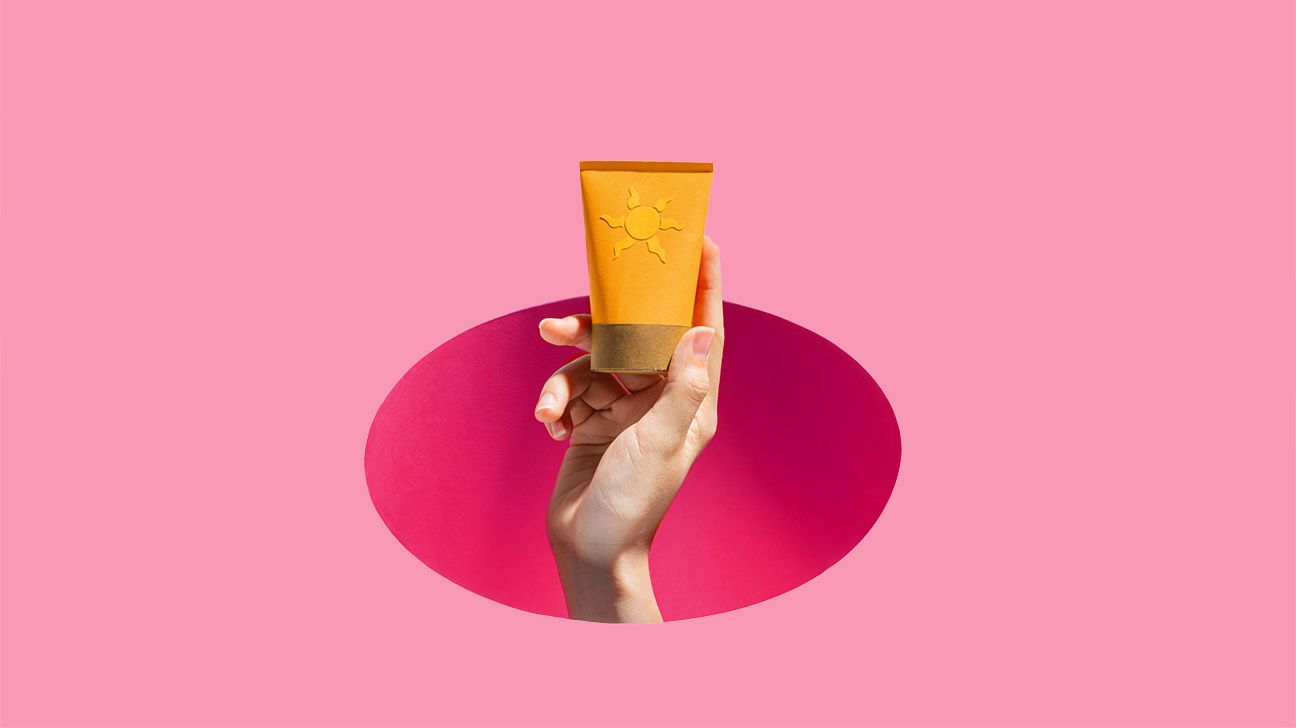Ready to paint yourself with SPF before a day of sun worship, but finding your sunscreen a little suspicious? Check the expiration date, you could have expired sunscreen on your hands.
Depending on how old it is, expired sunscreen may still offer your skin some protection. But if it’s extremely expired, it’ll do your skin about as much good as no sunscreen.
Need help figuring out if it’s time to toss out that tired, maybe expired sunscreen? We talked with some dermatologists to get the scoop on out-of-date sun protection.

If you’re ready to frolic on the beach, is your old half-full bottle still OK?
According to the American Academy of Dermatology Association, the FDA requires sunscreen makers to ensure their products are effective for 3 years. If you found sunscreen from last summer in the back of your cabinet, it may still be good.
Check the expiration date. If it’s past the date, toss it. If you find an old bottle without a date on it, how can you tell if it’s too old?
“If your sunscreen does change in color or consistency, that may one a sign that the sunscreen is no longer good and you should discard it, even if it has not reached its expiration date,” notes dermatologist Elizabeth Martin of Pure Dermatology & Aesthetics.
Squirt out some SPF and observe. It may be expired if it looks:
- lumpy, chunky, or watery in consistency
- has a yellow cast
- smells weird (at least weirder than a usual sunscreen smell)
Pro tip: If your new sunscreen doesn’t have an expiration date, write the date you purchased it on the bottle as a reminder that it’s only good for 3 years.
Follow these tips to keep your sunscreen good until its expiration date
The chemicals in sunscreen break down over time (a process accelerated by heat and sunlight). That means that after the date on the package, its effectiveness is uncertain. So, using expired sunscreen makes you more likely to get burned.
“That being said, if it’s a choice between sunscreen that has just passed its expiration date and not using sunscreen, I’d opt for using it,” says Maral K. Skelsey, dermatologist and clinical associate professor at Georgetown University.
Physical sun blockers found in mineral sunscreens like zinc oxide or titanium dioxide are more stable than chemical sunscreens, and may be a safer bet if you have to use sunscreen past its expiration date.
Just a reminder: You need about a shot glass worth of sunscreen to protect your whole body. Use a shot glass (1 ounce) per day, and even a giant bottle will run out in less than 3 years.
Using sunscreen that is expired or broken down may compromise your sun protection.
“The issue is that it may not be as effective as labeled, putting you at risk in the short term for sunburn and in the long term for skin cancer and photoaging or early skin aging,” Skelsey says.
Besides using fresh sunscreen, Martin suggests the following to get the most out of your SPF:
- Use sunscreen that is broad-spectrum and has an SPF of at least 30.
- Put on your sunscreen at least 15 minutes before going outside.
- Reapply every 2 hours while outdoors, or more frequently if you are swimming or sweating.
- Use a water-resistant formula, which helps sunscreen last longer in wet or damp environments.
- Don’t forget to protect your lips with a lip product that has an SPF of at least 30.
Besides applying sunscreen, how else can you keep your skin safe from sun damage? Try these derm-approved tips for extra sun protection:
- Wear sun protective clothing with an ultraviolet protection factor (UPF) rating.
- Use a wide-brimmed, tightly woven hat to cover ears, neck, and face.
- Ultraviolet protective sunglasses help protect eyes.
- Plan outdoor activities before 10 a.m. or after 2 p.m. to avoid peak sun intensity.
“Seek shade as much as possible, and use extra caution around snow, sand, and water, so you aren’t subject to the reflected rays of the sun,” Martin says. “I see many patients who went to the beach, thought they were safe under an umbrella, but were still sunburned due to the reflected light.”
Using sunscreen slightly past its expiration date may be better than nothing, but it can increase your chance of sun damage. Check your sunscreen for signs of expiration like changes in color, smell, and consistency. Keeping new sunscreen out of the sun can also help it stay fresh for longer.
When applying fresh sunscreen, use at least 1 ounce of broad-spectrum sunscreen with SPF 30 or higher to cover your entire body.
Apply generously every time you are in the sun, and you prob won’t have to worry about passing that expiration date.

